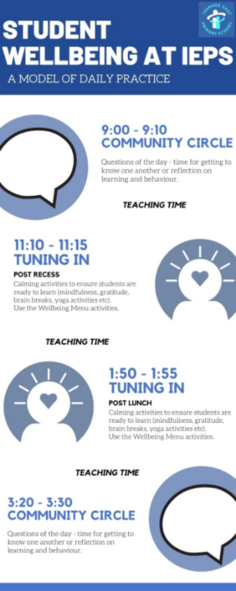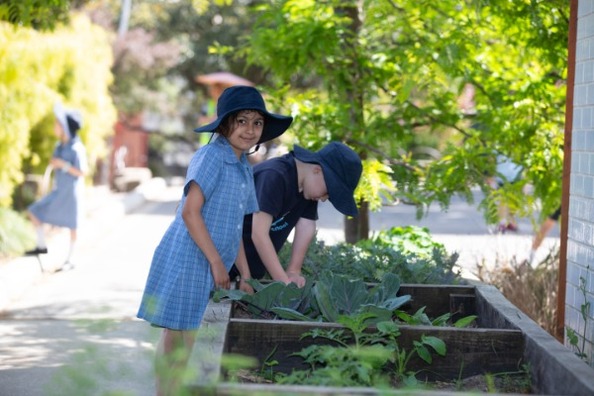Zones of Regulation
Ivanhoe East Primary School practices and utilizes the Zones of Regulation to supports children to manage difficult emotions, known as ‘self-regulation’. We want to teach all of our children good coping and regulation strategies so they can help themselves when they experience anxiety and stress. In the classroom, sometimes children panic when faced with a tricky learning problem or challenge. By teaching them how to cope with these feelings might make them better at tackling learning challenges and build better resilience so they don’t give up so easily when faced with difficulty.
We aim to help children to:
- Recognise when they are in the different Zones and learn how to change or stay in the Zone they are in.
- Increase their emotional vocabulary so they can explain how they are feeling.
- Recognise when other people are in different Zones, thus developing better empathy.
- Develop an insight into what might make them move into the different Zones.
- Understand that emotions, sensory experiences such as lack of sleep or hunger and their environment might influence which Zone they are in.
- Develop problem-solving skills and resilience.
- Identify a range of calming and alerting strategies that support them (known as their personal ‘toolkit’.
Smiling Minds
Smiling Minds is an evidence-based approach to support student mental health and wellbeing. Mindfulness improves attention, working memory, cognitive flexibility, reasoning, planning, goal directed behaviour and self-regulation, essential skills when it comes to learning new information. Mindfulness also reduces emotional reactivity, behavioural issues, anxiety, and depression. This means students have fewer potential obstacles standing in the way of their learning.
Ivanhoe East Primary School is using Smiling Minds to improve student, teacher and community wellbeing, by
- Promoting and modelling mindfulness during Tuning In time
- Utilizing the mindful mindsets
- Teaching social and emotional learning, in conjunction with RRRR
Daily Model of Practice
Every day at Ivanhoe East Primary School, there are key wellbeing touchpoints that prioritize student’s social and emotional health and capacity to concentrate in their learning.
Community Circle
Community circle is time for students to come together in the morning and at the end of the day to build a strong, inclusive class community. The expectations during community circle may vary from class to class, but the non-negotiables are:
- Appreciation of others (i.e. no put-downs)
- Listen attentively
- Respect everyone
- Right to pass (students can pass when it's their turn)
Discussion Topics
Discussions can vary according to the classroom needs and teacher discretion. They could focus on:
- Reflection on the day or reflection on behaviour
- Sharing information about ourselves
- Discussing issues from the class or in the world
- Posing questions to one another
Tuning In
‘Tuning in’ is time after recess or lunch, and any other time students need, to settle into learning. It may include calming, mindfulness, stretching or listening activities for preferably 2-3 minutes. This support student’s ability to concentrate in their learning.
Shared Expectations
At Ivanhoe East Primary School, we acknowledge our responsibility to provide an educational environment that ensures that all students are valued and cared for, feel they are part of the school, and can engage effectively in their learning and experience success.
Our school shared expectations include:
- Inclusive teaching practices
- Rights and responsibilities and classroom agreements clearly displayed in each classroom and referred to
- Positive behaviour management
- Daily community circle
- Weekly social and emotional teaching/learning
- Use and reference to the school’s values
- Use and reference to the Behaviour Flow Chart
- Parent/carer partnerships and liaison
- Provision of appropriate student service


